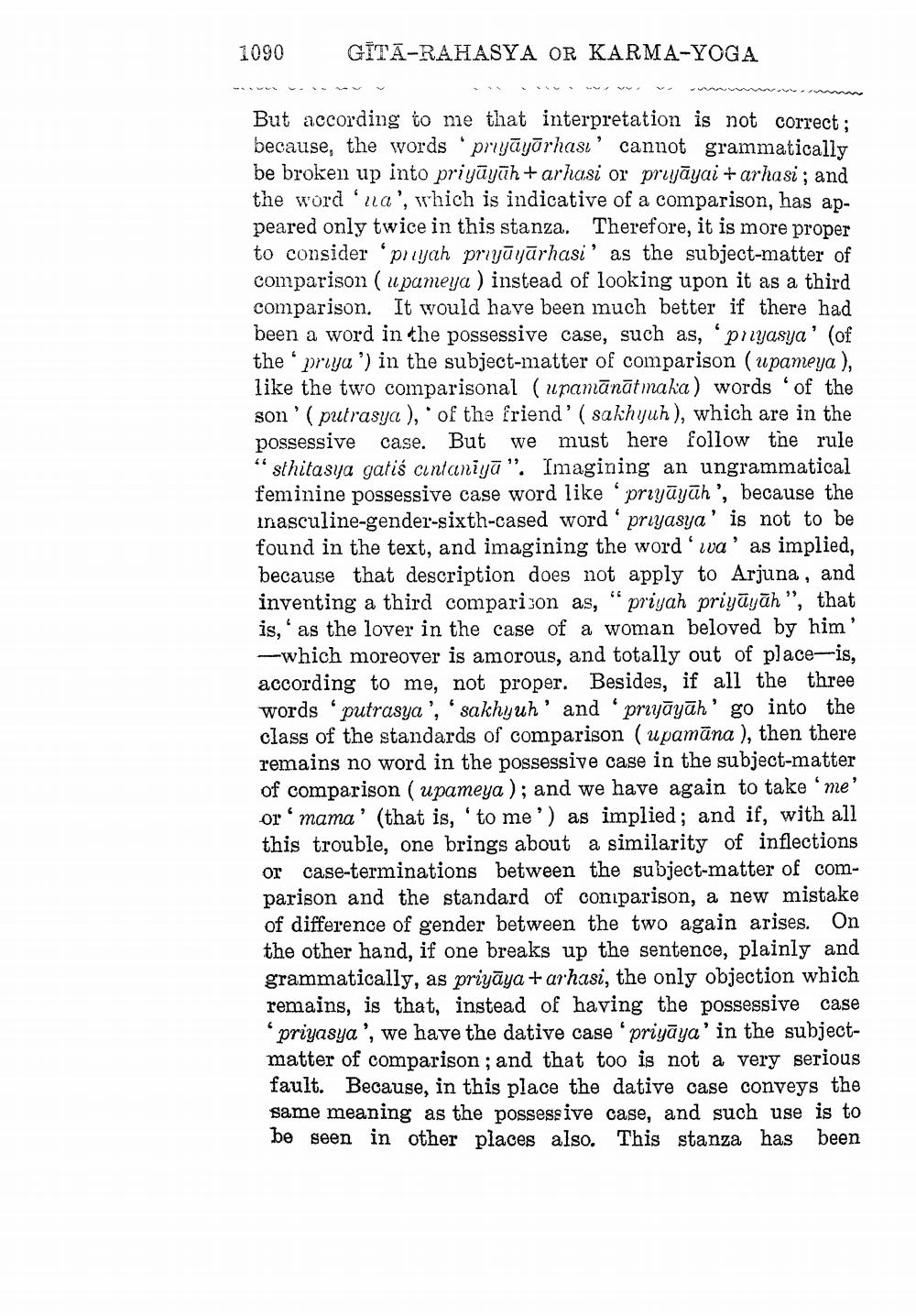________________
1090
GITA-RAHASYA OR KARMA-YOGA
But according to me that interpretation is not correct: because, the wordspryāyārhası' cannot grammatically be broken up into priyāyāh + arhasi or priyāyai +arhasi; and the word 'na', which is indicative of a comparison, has appeared only twice in this stanza. Therefore, it is more proper to consider 'priyah priyāyārhasi' as the subject-matter of comparison (upameya ) instead of looking upon it as a third comparison. It would have been much better if there had been a word in the possessive case, such as, 'pryasya' (of the ' priya ') in the subject-matter of comparison (upameya ), like the two comparisonal (upamānāt maka) words of the son' (putrasya ), of the friend' ( sakhyuh), which are in the possessive case. But we must here follow the rule “sthitasya gatiś cintaniyā". Imagining an ungrammatical feminine possessive case word like 'priyāyāh', because the inasculine-gender-sixth-cased word. priyasya' is not to be found in the text, and imagining the word 'lva' as implied, because that description does not apply to Arjuna, and inventing a third comparison as, "priyah priyāyāh”, that is,' as the lover in the case of a woman beloved by him' --which moreover is amorous, and totally out of place-is, according to me, not proper. Besides, if all the three words putrasya': 'sakhyuh' and 'priyāyāh' go into the class of the standards of comparison (upamāna), then there remains no word in the possessive case in the subject-matter of comparison (upameya ); and we have again to take 'me' or 'mama' (that is, 'to me') as implied; and if, with all this trouble, one brings about a similarity of inflections or case-terminations between the subject-matter of comparison and the standard of coniparison, a new mistake of difference of gender between the two again arises. On the other hand, if one breaks up the sentence, plainly and grammatically, as priyāya + arhasi, the only objection which remains, is that, instead of having the possessive case
priyasya', we have the dative case 'priyāya' in the subjectmatter of comparison ; and that too is not a very serious fault. Because, in this place the dative case conveys the same meaning as the possessive case, and such use is to be seen in other places also. This stanza has been




